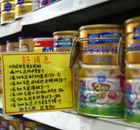Asia-Pacific
Iran troops withdraw partially from oil wells - Iraq
(Agencies)
Updated: 2009-12-20 17:19
 |
Large Medium Small |
BAGHDAD: Iranian troops have withdrawn partially from a disputed oil well claimed by both Tehran and Baghdad, the Iraqi government spokesman said on Sunday. Ali al-Dabbagh said a small group of Iranian troops who had taken over an oil well in a remote region along the two countries' border last week were no longer in control of the well, which Iraq considers part of its Fakka oilfield.
"The Iranian flag has been lowered. The Iranian troops have pulled back 50 metres, but they have not gone back to where they were before. The Iraqi government asked for the troops to go back to where they were," Dabbagh said.
The border flare-up kicked off a storm of emergency meetings and bilateral phone calls, with Baghdad calling for an immediate withdrawal yet also seeking to contain damage to its important relationship with neighbouring Iran.
On Friday, global oil prices climbed following media reports that the Iranian troops had commandeered a well at the field southeast of Baghdad.
The two countries have a long history of border feuds, including one that escalated into a bloody eight-year war in the 1980s. The relationship warmed after 2003, when fellow Shi'ite Muslims took over in Baghdad and the countries' trade and religious tourism ties began to deepen.
Dabbagh said a joint committee would begin to look at demarcating the border in the desert region.
Fakka is a relatively small field, and currently produces about 10,000 barrels per day, Iraqi officials say.











